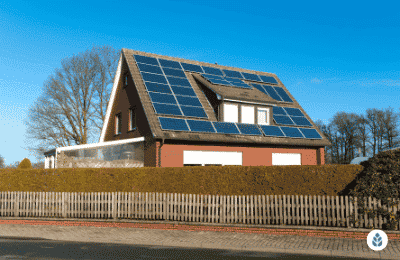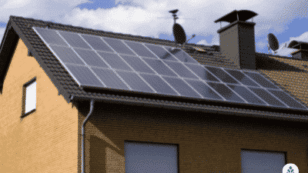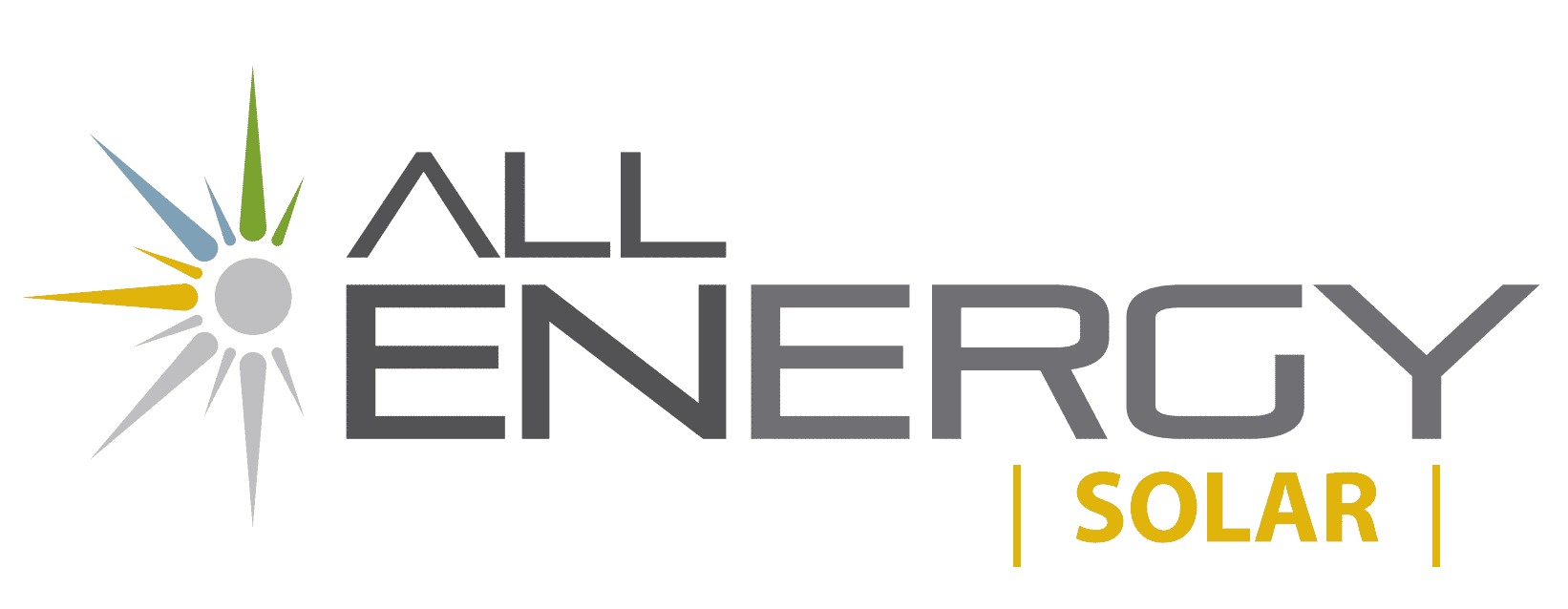
Top 5 Best Solar Companies in Wisconsin (2024 Reviews)
In this guide to Wisconsin’s best solar companies, you’ll learn
- What are the best solar companies in Wisconsin?
- How can you save money going solar in Wisconsin?
- Do solar panels increase home value in Wisconsin?
Each product and or company featured here has been independently selected by the writer. You can learn more about our review methodology here. If you make a purchase using the links included, we may earn commission.
What Are Wisconsin’s Top 5 Solar Energy Companies?
Electricity rates are soaring in Wisconsin, currently higher than the national average. As of the end of 2024, the average Wisconsin homeowner was paying nearly 17 cents per kilowatt-hour of energy used. And unfortunately, it’s only expected to keep climbing.
It’s true that Wisconsin may not be the sunniest state, but people are finding it’s well worth it to add solar panels to offset these high energy costs. The average Wisconsin homeowner can save over $1,000 a year by going solar, and lifetime savings of over $28,000 after their solar energy system pays for itself.
If you’re thinking about installing solar panels to reduce your electricity bills and carbon footprint, these are the top solar installers we recommend in Wisconsin that have been rated top local or regional providers for the area:
Our reviews are curated by a team of solar experts, backed by insider data and reviewed by an advisory board to ensure we provide only the most vital information, minus the marketing gimmicks. Read on to learn more about each of the best solar companies in Wisconsin.

All Energy Solar
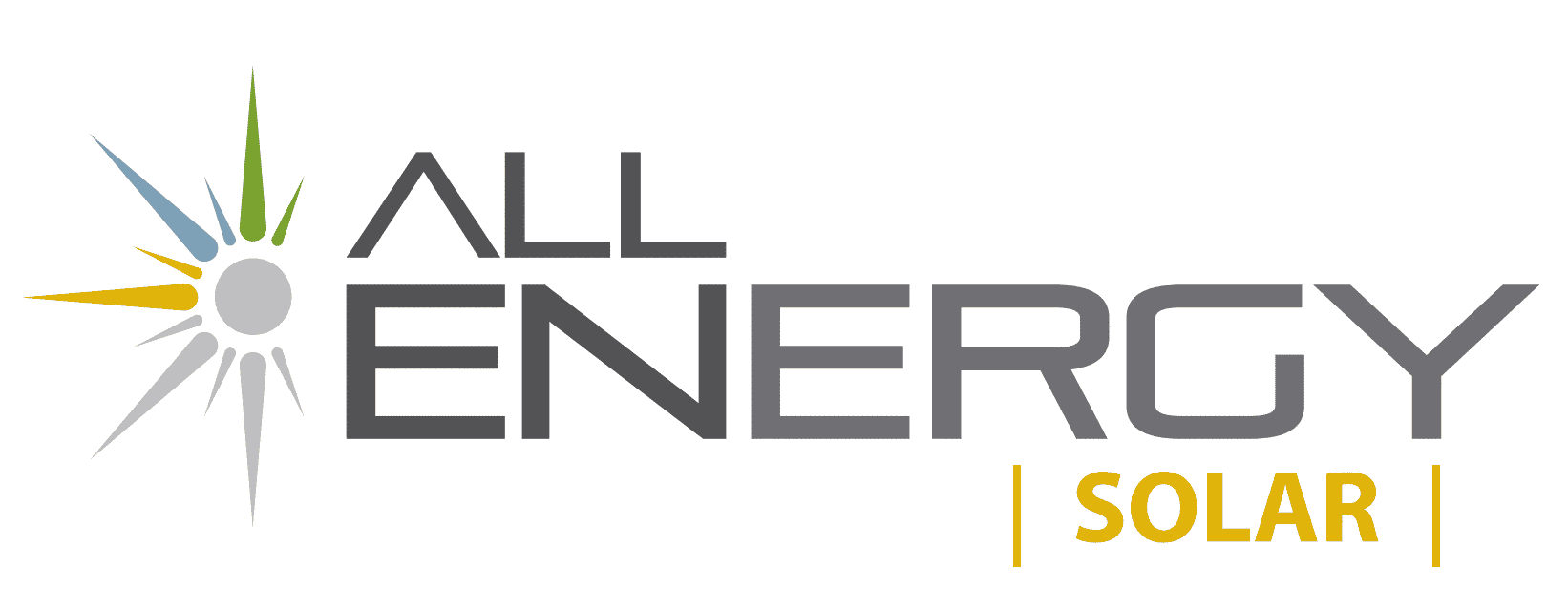
Regional Service
Average cost
Pros
- Full-service home energy solutions
- Excellent reputation
- NABCEP-certified technicians
Cons
- Expensive
With over a decade of experience under its belt, All Energy Solar has become a premium provider in several states, including Wisconsin. All Energy Solar has become known as a reliable solar provider servicing six states in the eastern and midwest U.S.
All Energy Solar is one of the few solar providers licensed as an electrical contractor and a building contractor. In addition, the company is NABCEP (North American Board of Certified Energy Practitioners) certified, which shows credibility in the solar industry.
All Energy Solar companies enjoy an array of benefits, such as excellent warranties — including 25 to 30-year production warranties — various high-end solar panel brands and free virtual solar evaluations to get started.
This installer also has a superb A+ rating from the Better Business Bureau (BBB) and high ratings from their customer reviews online.
Facts and Figures: All Energy Solar
| EcoWatch Rating |
|---|
| Better Business Bureau (BBB) Rating |
| Average Cost ($-$$$$$) |
| Solar Services |
| 4.5 |
| A+ |
| $$$$$ |
| Solar Panels, Solar Batteries, Electrical Work, System Monitoring |

Sun Badger Solar

Regional Service
Average cost
Pros
- Offers products from leading manufacturers
- Competitive pricing
- Offers rewards for customer referrals
Cons
- No leases or PPAs
- Relatively young company
Sun Badger Solar is a relatively young solar provider servicing Wisconsin and three other states. Although Sun Badger Solar has only been in the clean energy business since 2018, the company has become a popular pick among dozens of Wisconsin residents. That’s likely because, as the name suggests, the company was founded and remains headquartered in the Badger State, despite its expansion to other parts of the U.S.
Sun Badger Solar services commercial and residential customers in Wisconsin, Illinois, Minnesota and Florida and has a strong focus on energy efficiency.
Customers who choose Sun Badger Solar rake in the abundant benefits of the company’s services. That includes competitive pricing and flexible financing (like $0-down solar loans), as well as information on federal solar tax credits.
Sun Badger also offers a diverse array of the best solar brands, including the top-rated Tesla, LG, SolarEdge and Qcells. All of its products are backed by a 25-year manufacturer warranty and an above-industry-average 25-year workmanship warranty.
Facts and Figures: Sun Badger Solar
| EcoWatch Rating |
|---|
| Better Business Bureau (BBB) Rating |
| Average Cost ($-$$$$$) |
| Solar Services |
| 4 |
| A- |
| $$ |
| Solar Panels, Solar Batteries, EV Chargers, Maintenance & Repairs |

Arch Electric
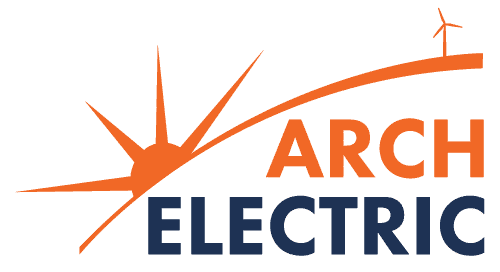
Local Installer
Average cost
Pros
- Excellent reputation
- NABCEP-certified technicians
- Competitive pricing
- Offers products from leading manufacturers
Cons
- No leases or PPAs
Arch Electric is a seasoned solar system installer with almost twenty years of experience, making it one of the most experienced solar installers in the Badger State.
With office locations in Plymouth, Milwaukee and Madison, WI, Arch Electric is local through and through. It’s prepared to service residential, utility and commercial clients across southern Wisconsin and the Waukesha area.
We picked Arch Electric because it offers excellent service, trusted through nearly two decades of experience and knowledge in photovoltaic (PV) technology. Customers enjoy various benefits, including competitive pricing, a variety of financing options (solar loans), and various high-quality brands like Panasonic, Tesla, Enphase and more.
Arch Electric’s solar panels are backed by a 25-year manufacturer warranty and a 5-year workmanship warranty. While we’d like to see the workmanship a bit longer, it’s better to have one than not. While Arch Electric has an A+ rating on the BBB, it is not an accredited business.
Facts and Figures: Arch Electric
| EcoWatch Rating |
|---|
| Better Business Bureau (BBB) Rating |
| Average Cost ($-$$$$$) |
| Solar Services |
| 4 |
| A+ |
| $$ |
| Solar Panels, Solar Batteries, EV Chargers |

Everlight Solar

Regional Service
Average cost
Pros
- Expansive service area
- Award-winning company
- Representatives are experts on local policies
Cons
- Slightly limited service offerings
- Some reported issues with door-to-door sales
- Relatively young company
Even though Everlight Solar was only founded in 2017, it’s hard to turn a blind eye to this award-winning regional installer. Everlight is praised for its excellent customer service throughout Wisconsin, with most online reviews mentioning the company’s prompt responses, attention to detail and consistent communication.
The solar technicians at Everlight aren’t new to the game, either. They’re especially attentive when it comes to financing solutions and helping Wisconsin customers take advantage of solar incentives, including the federal tax credit. However, Everlight only accepts cash purchases and solar loans, so customers who want lease options or power purchase agreements (PPAs) (which we typically don’t recommend) will need to look elsewhere.
Everlight Solar offers industry-standard warranty coverage, including a 25-year performance guarantee and 10 years of coverage on equipment and workmanship. Based on customer comments, the company is easy to contact and quick to respond to warranty claims after the solar panel installation.
In our eyes, the biggest disadvantage is that Everlight doesn’t carry a wide variety of solar panel brands. However, it is a Tesla and Generac certified installer, so you can expect top-of-line solar energy storage systems, which is great news for homes in storm-prone Wisconsin.
With only five years in the business, Everlight may not have a long-standing track record for great service like many of its competitors in Wisconsin. But its customer feedback and growth throughout the Midwest show a promising future.
Facts and Figures: Everlight Solar
| EcoWatch Rating |
|---|
| Better Business Bureau (BBB) Rating |
| Average Cost ($-$$$$$) |
| Solar Services |
| 4 |
| A+ |
| $$$$ |
| Solar Panels, Solar Batteries |

Olson Solar Energy

Local Installer
Average cost
Pros
- Excellent reputation
- Competitive pricing
- Offers products from leading manufacturers
Cons
- No leases or PPAs
- Slightly limited service offerings
Olson Solar Energy is an excellent solar electric system provider servicing Wisconsin, western Minnesota and northern Iowa. Despite being relatively new to the solar industry (founded in 2017), Olson Solar Energy has quickly surged to a premium solar provider in Wisconsin.
Customers who choose Olson Solar Energy reap the numerous benefits of the company’s services, including numerous high-end panel brands (Tesla, SolarEdge, Enphase, etc.), competitive pricing and free home evaluations to get the process started.
Olson’s website is full of helpful information for homeowners new to solar power, including resources for a variety of solar financing options. The solar installation company is also affiliated with many local and regional organizations, including the Midwest Renewable Energy Association (MREA) and Renew Wisconsin, which tells us they’re concerned with the health of the planet and not just out to make a profit.
Olson Solar Energy earned dozens of positive reviews from satisfied customers. The company also boasts the highest rating from the Better Business Bureau: A+.
Facts and Figures: Olson Solar Energy
| EcoWatch Rating |
|---|
| Better Business Bureau (BBB) Rating |
| Average Cost ($-$$$$$) |
| Solar Services |
| 4 |
| A+ |
| $$ |
| Solar Panels, Solar Batteries |
Watch Below: How Well Will Your Solar Panels Still Work When Covered In Snow?
How Can You Save Money When Hiring A Solar Company In Wisconsin
The average solar panel system costs $23,240 in Wisconsin, or $16,268 after the federal tax credit is taken into account. Those prices are for a solar project that produces about 7 kilowatts (kW) of energy (roughly 20 solar panels) because that’s how much energy is needed to offset the average household energy needs in Wisconsin.
The cost will fluctuate depending on your household energy consumption. Solar panel costs are typically priced per watt, coming in at around $3.32 per watt in Wisconsin (just below the national average cost of solar at $3.33 per watt).
While solar is cheaper in Wisconsin, $23,240 isn’t a small investment. But there are some ways you can save money when hiring a solar company in Wisconsin:
- Take advantage of local and federal solar incentives
- Only install as many solar panels as you need
- Put more money down or pay in cash
- Shop around and get several quotes
Take Advantage of Local and Federal Solar Incentives
While Wisconsin isn’t the first place most would think of when it comes to solar power, state leaders sure make it tempting to install solar panels by providing a lot of solar incentives for homeowners who help the state reach its Renewable Portfolio Standards (RPS) goals.
Below is a brief overview of some of the programs you can take advantage of to save money going solar in Wisconsin. You can check out our guide to solar incentives in Wisconsin for more in-depth information.
| WISCONSIN SOLAR INCENTIVE | DESCRIPTION |
| Federal Solar Tax Credit | The federal solar tax credit is available to all WI homeowners as a credit to the federal income taxes owed the year the PV system is installed. The credit is for 30% of the total solar panel system cost, which, in Wisconsin, comes out to an average of $6,972.2 |
| Net Metering | Net metering is a billing policy that lets you reduce your energy bills by sending excess energy produced by your system to your electric provider. Utility companies are required by state law to provide net metering, but each company decides its own rate.3 |
| Sales Tax Exemption | In an effort to reduce upfront costs of going solar, the state waives sales tax on all solar equipment. With an average sales tax rate of 5%, the average savings is around $910.4 |
| Property Tax Exemption | Most home improvements increase your property taxes because they bump up the assessed value on which your property taxes are based. Wisconsin’s property tax exemption prevents your non-educational property taxes from increasing from your conversion, even though solar panels bump up home value. |
| Focus on Energy Program | The Focus on Energy Program in Wisconsin provides residential solar customers with up to a $500 rebate for their solar panel installation cost. This program applies to customers of most — but not all — local utility companies. |
Only Install As Many Solar Panels As You Need
While Wisconsin has a favorable net metering program, you still don’t want your solar panel system to be producing more energy than what’s needed to power your home.
As we mentioned before, solar panel systems are priced on a per-watt basis. So to save on a solar panel system, you’d ideally want to install the smallest one possible that still produces enough power to meet your needs.
| Size of Solar Panel System | Wisconsin Solar Panel Cost | Cost After Federal Tax Credit |
| 4 kW | $13,280 | $9,296 |
| 5 kW | $16,600 | $11,620 |
| 6 kW | $19,920 | $13,944 |
| 7 kW | $23,240 | $16,268 |
| 8 kW | $26,560 | $18,592 |
| 9 kW | $29,880 | $20,916 |
| 10 kW | $33,200 | $23,240 |
To figure out what size solar system you need, you’ll need to check your utility bills to figure out your average monthly energy consumption.
The average Wisconsin resident consumes 690 kilowatt-hours of electricity per month.4 Dividing this number by 100 will give you a ballpark estimate of the system size needed for that home, which is why in Wisconsin the average homeowner needs a 7 kW system (rounded up from 6.9, of course)
Put More Money Down or Pay In Cash
Affording an entire solar panel system in cash (or credit) is not a realistic option for most homeowners. But the more you pay upfront, the more energy savings you’ll accrue over time.
There are plenty of solar financing options available if you can’t afford to pay for your entire solar array at once, the most popular being a solar loan. However, if you choose a solar loan, what you pay in interest will be an additional cost you wouldn’t pay if you bought your panels in cash.
That’s why we recommend putting as much money down on your solar panels as possible and trying to pay off the loan as quickly as you can. That way, you can minimize your interest payments and pay off your solar panels faster. Just make sure you check the loan conditions carefully to ensure you won’t get penalized for making extra payments.
Shop Around and Get Several Quotes
The Badger State has a growing solar market, with more than 60 different solar companies now serving Wisconsin.5 That means the market is pretty competitive, which can work to your advantage.
Be sure to shop around and get multiple solar quotes (at least two) to make sure you’re getting the best value out of your solar panels. Pro tip: if you prefer one company we’ve featured over another, but the preferred company is more expensive, use the lower quote as a bargaining chip. Many solar installers are willing to match prices.
See Also: Calculate How Much You Can Save By Going Solar
Will Solar Increase Your Home Value In Wisconsin?
Yes, multiple studies have confirmed that solar panels do increase the value of a home. In fact, in an EcoWatch survey of 1,000 homeowners, 63% of respondents said they’d pay more for a home with solar panels than a home without
Research from Zillow backs this up. In the real estate company’s study, it found that homes with solar panels typically sell for 4% more compared to homes without.6 In Wisconsin where the average home sells for $286,787, that turns into a potential $11,758 increase in home value.7
Should Wisconsin Residents Hire a Professional Solar Installer Or DIY?
We know it can be tempting to want to DIY a solar panel installation to save money.
Labor costs vary by company, but according to the U.S. Department of Energy’s National Renewable Energy Laboratory, labor typically accounts for at least 10% of the total cost of solar installation.8
In Wisconsin where the average solar installation costs $23,240, you can expect labor costs to be about $2,324 of the total installation.
That’s a nice chunk of change. But are the savings worth the risks?
Installing solar is more complicated than you think. When you hire a solar panel company, the installation process can involve a project manager, a team of licensed technicians and solar panel design specialists who all work together to make sure your solar panels are placed in the best direction and angle to get you the most solar power.
Unless you’re an electrician or certified in a similar trade, we don’t recommend installing your own solar panels. It’s not an easy job and it comes with a lot of potential risks to you and your home.
What Should Wisconsin Residents Look For in a Solar Installer?
You don’t need us to tell you that it’s a good idea to find a solar company that has positive customer reviews and knowledgeable staff. But there are other qualities that make some solar companies a better option for homeowners in Wisconsin, like offering
- High-efficiency panels
- Solar energy storage systems
- Strong warranties
High-Efficiency Panels
Wisconsin has an average of 188 sunny days a year, which is less than the national average of 205. While 188 is still plenty of sunshine, Wisconsin homeowners will get a lot more out of their solar investment if they opt for higher-efficiency solar panels.
The higher the efficiency of a solar panel, the more energy it can generate in a shorter period of time. The best solar panels on the market have an output of around 350 watts (W) to 400 W and efficiency ratings over 20%, which is what we’d recommend for Wisconsin homes.
Solar Energy Storage
Along with less than average sunshine, Wisconsin sees above-average snowfall. While solar panels still work when it’s cloudy and snowy, it’s safe to say that they won’t be as powerful during those periods.
Installing a solar energy storage system allows you to store the excess energy your panels produce on sunny days so that you can use them on those days when the sunshine isn’t as strong.
Strong Warranties
Even the cheapest solar panels are a pretty decent investment, so you want to get the most out of your investment. A solar panel system should last you at least 25 years, which means you shouldn’t accept a panel warranty that’s any less than that.
We also recommend choosing a company that has a workmanship warranty, because your solar panels are only as good as they were installed. A workmanship warranty — also called a labor warranty — protects you in the event of a faulty installation, or if there is any home or roof damage during installation.
For this reason, we really like Sun Badger Solar. Sun Badger offers 25-year workmanship and equipment warranties, which are above the industry standard.
The cost information presented in this article is derived from a comprehensive analysis, incorporating data from multiple industry sources. The average cost per watt per state was calculated based on figures from Consumer Affairs, Energy Sage, and Berkeley Lab’s Electricity Markets & Policy Department. Additionally, monthly energy consumption and the average monthly cost of electricity were sourced from the U.S. Energy Information Administration, ensuring a well-rounded and accurate representation of the information presented.
Methodology: How We Ranked Wisconsin’s Solar Companies
When we rank our top solar companies, we start by identifying the factors that matter most when ensuring that our readers find a trustworthy, reliable and environmentally responsible installation. We’ve listed those factors as categories below. We then weigh these factors against the industry benchmark (a company meeting the industry standard in all categories would earn 4 stars in our rating system).
Our goal is to deliver unbiased reports and honest reviews, thus, our methodology is not affected by commercial partnerships and is specifically tailored to Wisconsin homes.
- Solar Services (20%): All solar companies install panels, but others offer several related services, such as energy efficiency, electrical or roofing services. We give higher scores to companies that offer more services to benefit the homeowner.
- Qualifications, Reputation & Certifications (20%): Companies that make an effort to forge relationships with industry affiliations are more likely to last longer, have better service and create a positive lasting impact on the area they service.
- Solar Warranty & Customer Support (15%): Almost all solar companies carry solar panels that are protected under a 25-year equipment warranty, but we award additional points to solar companies that offer protection beyond that. But warranties are also only as good as the company’s customer support service, so we look for a good rating in that category, too.
- Solar Financing Options (15%): Going solar is an environmental solution that should be made more accessible to more people. As such, we award higher scores to companies that offer more numerous and flexible financing options to help more homeowners be able to afford solar panels.
- Experience (10%): Older, well-established companies tend to offer an abundance of experience and knowledge accumulated over decades of service. While some younger companies may be able to rival their older comrades, there’s something to be said about years of experience.
- Availability (10%): Some solar companies in Wisconsin only serve select cities or areas. We give higher ranking to companies that serve more cities, including Wisconsin’s more rural areas.
- Environmental, Social and Corporate Governance Factors (10%): While going solar is great for money-saving benefits, we prioritize people and the planet alongside your profit. As such, we take each company’s ecological and ethical standards into account when ranking our top providers.
FAQs: Best Solar Company In Wisconsin
We regularly answer dozens of solar questions at EcoWatch. If you have specific questions that aren’t answered here, reach out to our team of solar experts at solar@ecowatch.com.
Each of our top solar company picks is a reputable choice. However, Arch Electric offers a wealth of knowledge and experience. In addition, dozens of reviews attest to the company’s reputation.
Yes, the solar panel selection a company offers matters when choosing the best solar installer in your area. For example, if your solar project is a unique or out-of-the-box concept, you may require specific sizes or brands of solar panels, which not all companies will offer.
Selecting a trustworthy, reputable solar company that is right for your needs is crucial. Since solar energy systems are a large investment, it’s essential to pick the right company the first time. We recommend looking for companies that excel in warranties, customer reviews, BBB ratings, and financing options.
Yes, your utility company does matter when choosing a suitable solar company, so keep that in mind while searching. Additionally, note that some utility companies charge for net metering (which ties into your electricity rate). This is one of the final steps in the solar installation process.
Top Solar Installers in Wisconsin Cities
Comparing authorized solar partners
-
- Full-service home energy solutions
- Excellent reputation
- NABCEP-certified technicians
- Expensive
A+Outstanding Regional Installer
Having trouble deciding? Click below and use our process to receive multiple quotes instead:

 233k
233k  41k
41k 
